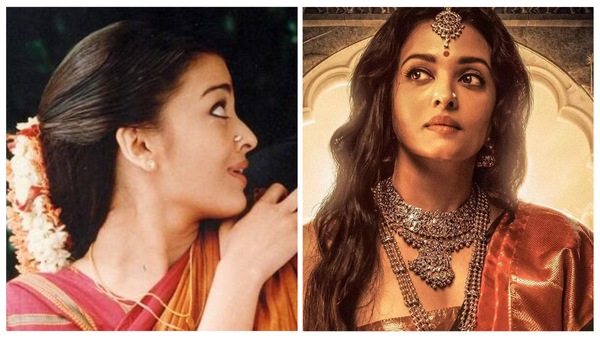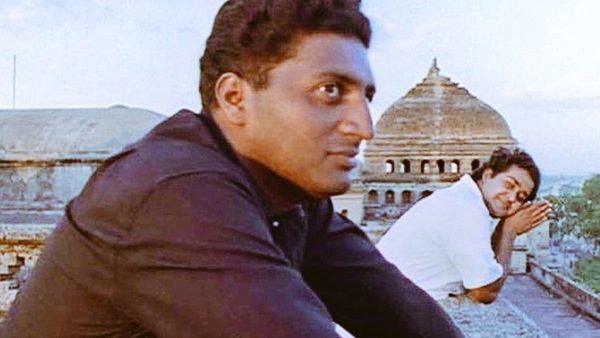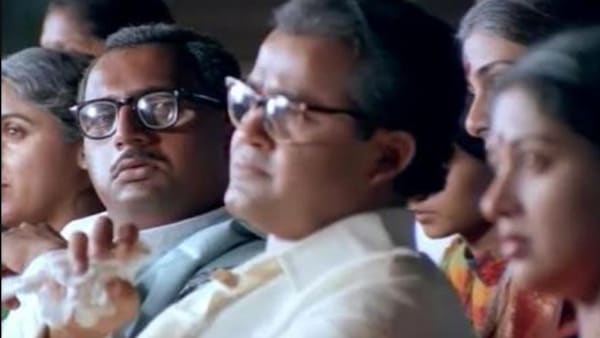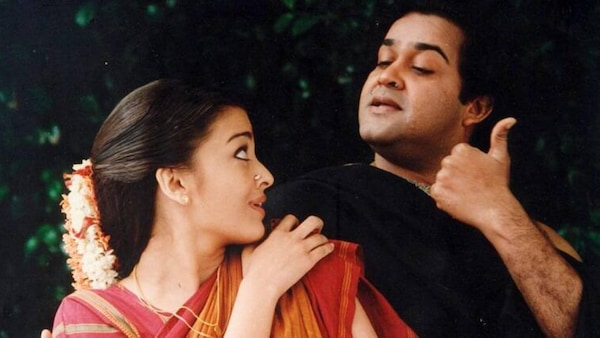Here’s how the women in Mani Ratnam’s films have evolved over 25 years since Iruvar
Tamil statecraft remains core while female characters become stronger

Last Updated: 12.54 PM, Apr 24, 2023
Mani Ratnam delivered a dazzling and complex historical fiction epic film with Ponniyin Selvan 1 earlier this year. Hailed as a celebration of Tamil glory and history, the filmmaker made a postmodern epic 25 years ago with Iruvar (1997). Controversial because of its loose adaptation of the lives of two former Tamil actors and a writer, who would all become chief ministers and political game-changers – M G Ramachandran, M Karunanidhi, and J. Jayalalithaa. In the Eighties, MGR and Karunanidhi played a huge part in carving a strong Dravidian identity and shaping Tamil cinema for decades in future. Whereas Jayalalithaa would become one of the most powerful women in Indian politics. Ratnam has called his film a work of fiction since he started making it. Iruvar also marked the debut of Aishwarya Rai Bachchan in a double role; Ratnam’s strong-willed and stunning Nandini in PS 1.

Iruvar had run into controversy before its release with Censor committee members objecting to its release. It had won accolades at international film festivals and was highly praised by audiences. To ensure that the film could be released Ratnam had to mute crucial dialogues between its lead characters at two points; he heightened the background music to mute their conversation, slicing off some of the impact from the film. Even so, riding on inspired Tamil poetry and solid performances by its cast, it was fresh, entertaining, and powerful. Mohanlal worked in a Tamil film in a major role for the first time, playing Anandan, the hero and demi-god and almost won a National Film Award. Tabu has a significant role as an educated school teacher that chooses love over societal approval. Prakash Raj plays Tamizhselvan, the poet, lyricist and politician. Revathy Menon played his meek wife, wronged and suffering silently.

Over time, revisiting Iruvar leads one to a consistent flaw in the film. Like the character of Revathy Menon, despite featuring women in key moments in this epic-scale story, Ratnam gives them little agency or choice. The best example of this is Aishwarya Rai Bachchan’s character Pushpa; beautiful, with barely any makeup on her face, she shines as the shy and meek wife to a young Anandan, the aspiring movie star. The village girl is intelligent but mostly silent and playful, but also a dutiful wife until her passing. When Rai makes a return in a double role, as a young, feisty aspiring actor, Kalpana, in a middle-aged Anandan’s life, she is argumentative, talkative, and demanding. But she is also positioned as a hot young heroine. In song sequences featuring Anandan and her, she is doing most of the dancing and cavorting. While Ratnam’s aesthetic never quite uses her as an object of desire, she does sway and swing a lot to impress Anandan; as was the norm of heroines in cinema for most of our history. What rankles, even more, are her choices. It’s as if flirting with the much older Anandan is predestined for her, and that they will fall for each other is a given. She doesn’t go out meekly but her eagerness to get her ‘hero’s’ attention could be difficult to swallow for young audiences today.

Ratnam has defined certain characteristics of love and romance onscreen with his films. Almost all have an element of Shakespeare’s ‘The Taming of the Shrew’ in the dynamic between man and woman. This is missing in Iruvar. Instead, the women in this film represent just one side of a story, never reflecting the other. Here, Tabu’s character Senthamarai, despite her education and privileged station in life, doesn’t think twice before setting up a second home with her lover, Tamizhselvan, despite him being married. She wrongs another woman, his first wife Maragatham (Revathy Menon) but there is no reference to this throughout the film beyond showing her as downcast. Both women stand by their man, attending a wedding together with their children. Similarly, Kalpana, the educated ‘modern’ heroine also doesn’t think twice about wooing a married man. This is adapted from true-life inspirations and is a fairly common phenomenon amongst movie stars. But the fact that the film doesn’t address this at all, that adultery and the impact on the wife don’t find mention does a disservice to gender equality. Both men that play dynamic and ambitious characters are not hesitant to cheat on their wives; or to take on younger women as their mistresses. That bit, albeit true, is somewhat jarring.

Having said that Iruvar set about a change in the adaptation of historical realities for South Indian cinema. It doesn’t over-dramatise or doesn’t make overt commercial discounts to its storytelling. A song in this film, Venilla Venilla, was shot entirely in natural light in and around the Taj Mahal, an accidental innovation because technicians had gone on strike. A R Rahman delivers a beautiful score and its cinematography stands out.
Iruvar would perhaps not have gotten a Censor certificate or a release in this day and age unless it sang to a very specific political-ideological tune. As for Mani Ratnam, his interpretation of women in a story has evolved over the decades. In PS 1 Nandini and princess Kundavai Devi (Trisha) manage politically volatile situations, have specific goals, and display intelligence as well as control. A cinematic journey that began for him in telling specific stories about powerful men now involve women in important moments. That’s worth cheering for.

(Views expressed in this piece are those of the author, and do not necessarily represent those of OTTplay)
(Written by Archita Kashyap, she has tracked cinema, music, and entertainment for a long time. She loves stories in any format and believes that OTT is the next change-maker that will bring the best stories for everyone.)

